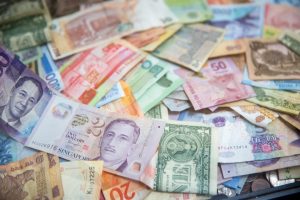The foreign exchange market, commonly known as forex, is the largest and most liquid financial market in the world. It is where individuals, institutions, and governments exchange one currency for another. The forex market is highly volatile, and the exchange rates fluctuate rapidly, making it challenging to predict the movement of currency pairs. So, what makes the forex market move? In this article, we will explore the factors that influence the forex market.
Economic Indicators
The forex market is influenced by various economic indicators that provide insight into the health of an economy. These indicators include inflation rates, Gross Domestic Product (GDP), employment rates, and interest rates. When an economy is performing well, the currency strengthens, and when it is performing poorly, the currency weakens.
For example, if the GDP of a country is growing, it indicates that the economy is strong, and investors are more likely to invest in that country. This increased investment leads to an influx of foreign currency, which strengthens the currency. Similarly, if the inflation rate is high, it indicates that the economy is overheating, and the central bank might raise interest rates to cool it down. This leads to a stronger currency.
Political Events
Political events such as elections, trade agreements, and geopolitical tensions can also affect the forex market. Elections, in particular, can have a significant impact on the currency. The uncertainty leading up to an election can cause investors to be cautious, leading to a weaker currency. In contrast, a stable government that is pro-business can lead to increased investment and a stronger currency.
Trade agreements can also have a significant impact on the forex market. For example, a country that signs a free trade agreement with another country can lead to increased trade and investment, which strengthens the currency. On the other hand, if there is a trade dispute between two countries, it can lead to a weaker currency.
Central Bank Policy
Central banks play a crucial role in the forex market. They are responsible for setting interest rates, managing inflation, and stabilizing the currency. Central bank policy can have a significant impact on the forex market. For example, if a central bank raises interest rates, it makes the currency more attractive to investors, leading to a stronger currency. On the other hand, if a central bank cuts interest rates, it makes the currency less attractive, leading to a weaker currency.
Market Sentiment
Market sentiment refers to the overall attitude of investors towards a particular currency. It is influenced by various factors such as economic indicators, political events, and central bank policy. When investors are optimistic about a currency, they are more likely to invest in it, leading to a stronger currency. In contrast, when investors are pessimistic about a currency, they are more likely to sell it, leading to a weaker currency.
Technical Analysis
Technical analysis is a method of analyzing the forex market by studying historical price and volume data. Technical analysts use various charts and indicators to identify trends and patterns in the market. They believe that the past behavior of the market can provide insights into future price movements.
Conclusion
The forex market is influenced by various factors such as economic indicators, political events, central bank policy, market sentiment, and technical analysis. Understanding these factors is essential for traders to make informed decisions and navigate the volatile forex market. It is also essential to note that the forex market is highly unpredictable, and no single factor can explain its movements entirely. Therefore, traders must remain vigilant and adapt to changing market conditions to succeed in the forex market.






